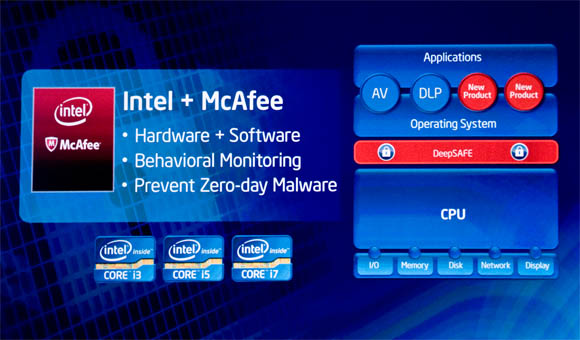Search engines and internet service providers (ISPs) could be forced to make it harder for users to access copyright infringing content online under new UK communications laws, the Culture Secretary has said.
Jeremy Hunt said that the UK needed to “explore all options” that would make it more difficult for websites that “ignore the law”. He called online file-sharing “theft” that was “a direct assault on the freedoms and rights of creators of content to be rewarded fairly”.

Hunt told an audience at the Royal Television Festival (RTF) in Cambridge that the UK might ask search engines and ISPs to play more of a part in tackling online copyright infringement.
“We need to explore all options to make life more difficult for sites that ignore the law,” Hunt said in his speech.
“I believe these could include a responsibility on search engines and ISPs to take reasonable steps to make it harder to access sites that a court has deemed contain unlawful content or promote unlawful distribution of content,” Hunt said.
Hunt also said that a “cross-industry body” could be established and “charged with identifying infringing websites against which action could be taken”.
A “streamlined legal process” could also be set up to help courts “act quickly”, whilst responsibility could be placed on advertisers and credit card companies to remove adverts and services from copyright infringing sites, Hunt said.
Voluntary agreements could be set up to help provide solutions to online copyright infringement, but if they cannot be established the Government will propose new measures under law, Hunt said.
Earlier this year, Hunt announced that the government would conduct a review of UK communications laws. In May the government opened a consultation on new communications laws and sought feedback from media and communications businesses, including telephone providers, TV, radio and online publishers.
Evidence gathered from the consultation, which has now closed, would be used to inform proposals for a Communications Bill that could lead to a raft of new communications regulations coming into effect in 2015, Hunt said at the time.
In his RTF speech Hunt said that it was “fundamental” that freedoms and the law should “apply equally” online as they do “in the physical world”.
“We do not allow certain products to be sold in the shops on the high street, nor do we allow shops to be set up purely to sell counterfeited products,” Hunt said in his speech. “Likewise we should be entitled to make it more difficult to access sites that are dedicated to the infringement of copyright. Sites that are misleading customers and denying creators fair reward for their work.”
Free speech lobbyists labeled Hunt’s plans “very dangerous”.
“Jeremy Hunt is pushing new knee-jerk measures to pressurise private bodies into making decisions about who is breaking the law. That amounts to privatisation of justice, which is very dangerous,” Jim Killock, executive director of the Open Rights Group said.
“Mr Hunt also committed to seeking evidence before making copyright policy. We have today filed an FOI request asking for the evidence he has collected: we are willing to bet that he has not commissioned anything, and yet again, these are unbalanced, lobby-driven proposals,” Killock said.
Under UK copyright laws it is currently possible to force ISPs to block access to copyright-infringing material.
In July the Motion Picture Association (MPA) won a landmark High Court ruling against the UK’s biggest internet service provider (ISP) BT in which it successfully argued that BT should block its customers’ access to a website that provides links to pirated films.
The High Court made its ruling under section 97A of the Copyright Designs and Patents Act. That section gives UK courts the power to grant an injunction against an ISP if it had “actual knowledge” that someone had used its service to infringe copyright.
The Act does not specify what purpose an injunction must serve. Section 97A implements the requirements of the EU Copyright Directive which states that countries must ensure that copyright holders have the right to apply for injunctions against intermediaries, such as ISPs, whose services are used to infringe copyright.
The Court’s order was the first to force an ISP to block access to such a site under UK copyright laws.
An option to introduce additional new website blocking regulations under the Digital Economy Act (DEA) were shelved in August, although further regulations under the DEA that could allow copyright owners to obtain the details of illegal file-sharers from ISPs are expected to be introduced shortly.
The Culture Secretary also called for improved measures for tackling offensive online content, and said that the new communications laws could force ISPs to “ensure all their customers make an active choice about parental controls, either at the point of purchase or the point of account activation”.
In his speech Hunt also said that the UK needs a new “platform-neutral” framework to protect media plurality.
“In an age when consumers are moving freely from platform to platform we should not be restricting media operators from developing products that can follow their customers from TV to internet to smartphone to tablet,” Hunt said.
“But by the same merit we should measure their influence based on a sensible aggregation of consumer contact through those different types of media,” he said.
Hunt said he had asked Ofcom, the UK’s media regulator, to submit evidence to the Leveson Inquiry on “whether or not it is practical or advisable to set absolute limits on news market share; whether they believe a framework for measuring levels of plurality could or should include websites and if so which ones; and whether or how it should include the BBC”.
An Ofcom spokesperson told Out-Law.com earlier this week that it had been asked to submit evidence as part of the ongoing inquiry and that it “welcomes the opportunity to assist” in doing so.
The Leveson Inquiry was announced earlier this summer and primarily focuses on the culture, practices and ethics of the press. The Inquiry team, led by Lord Justice Leveson, is also responsible for making recommendations “for a more effective policy and regulatory regime which supports … the plurality of the media, and its independence” as well as advise on “how future concerns about … cross-media ownership should be dealt with”.
Hunt said that “independent regulators” should be able to launch investigations into media plurality if, and “propose remedies” to protect it, if its in the public interest even when companies are not in the process of discussing mergers or takeovers.
“A country’s character, the unique bonds that define its society and its democratic institutions are all shaped by its media,” Hunt said in his speech. “So we need to take special care to ensure we have vibrant, free – even raucous – debate. We need to ensure that there is the opportunity for multiple voices. And we must take care that power is never over-concentrated in a few hands,” he said.
 Copyright © 2011, OUT-LAW.com
Copyright © 2011, OUT-LAW.com
OUT-LAW.COM is part of international law firm Pinsent Masons.
Article source: http://go.theregister.com/feed/www.theregister.co.uk/2011/09/15/search_companies_and_isps_may_be_asked_by_gov_to_tackle_copyright_infringement/



